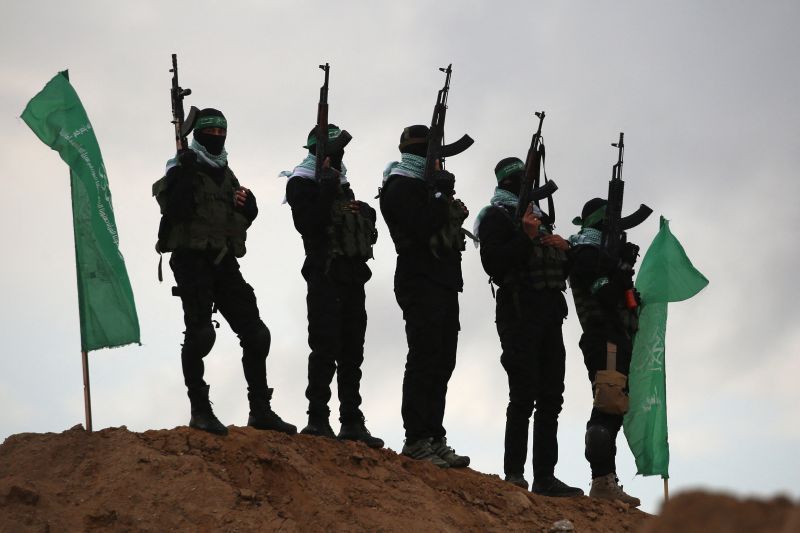- Home
- Middle East
- Hamas Delegation Expected in Cairo to Discuss Gaza Truce Efforts

Hamas fighters gather at the site of the handover of the bodies of four Israeli hostages in Khan Younis, southern Gaza Strip, on February 20, 2025. ©Eyad Baba / AFP
A senior Hamas delegation was due in Cairo for talks with Egyptian officials on efforts by mediators to secure an elusive ceasefire in Gaza, two Palestinian sources told AFP on Tuesday.
Together with Qatar and the United States, Egypt has been involved in mediation between Israel and the Palestinian militant group Hamas that has failed to secure a breakthrough since a short-lived truce earlier this year.
Upon Egypt's invitation, the Hamas delegation led by the group's chief negotiator, Khalil al-Hayya, "is expected to arrive in Cairo today (Tuesday) or tomorrow morning," the source told AFP, requesting anonymity to discuss the sensitive negotiations.
The source said the delegation was scheduled to meet Egyptian officials on Wednesday to "discuss the latest developments" in "ceasefire negotiations and prisoner exchange" that would include the release of hostages held in Gaza.
Another Palestinian source familiar with the negotiations confirmed the Cairo meeting was planned and told AFP that "mediators are working to formulate a new comprehensive ceasefire agreement proposal."
Such a proposal could include "a 60-day truce followed by negotiations for a long-term ceasefire and a deal for the exchange of all Israeli captives, both living and deceased, in one batch," said the source.
Of the 251 hostages taken during Hamas's October 2023 attack on Israel that triggered the war, 49 are still held in Gaza, including 27 the Israeli military says are dead.
Both Israel and Hamas have accused the other side of failing to compromise, and the source said that "so far, there is nothing new to be optimistic about, especially as the occupation (Israel) has repeatedly worked to obstruct any agreement."
A Hamas official, also requesting anonymity, told AFP that his group "has not received any new proposal" from Israel via mediators.
But Hamas remains "ready to reach an agreement if the occupation (Israel) decides to do so," the official added.
He said Hamas wanted to see "a permanent end to the war" along with the lifting of Israel's blockade and restrictions on aid to ensure its "natural flow" into the Gaza Strip.
The war has created dire humanitarian conditions for Gaza's population of more than two million people.
Israel's security cabinet last week approved plans for a major operation to seize Gaza City, triggering a wave of domestic and international criticism.
AFP
Read more



Comments